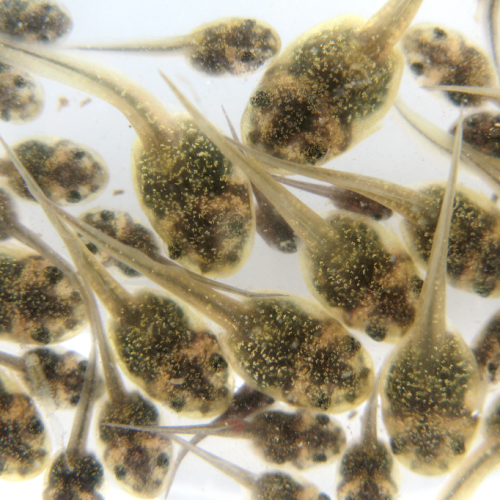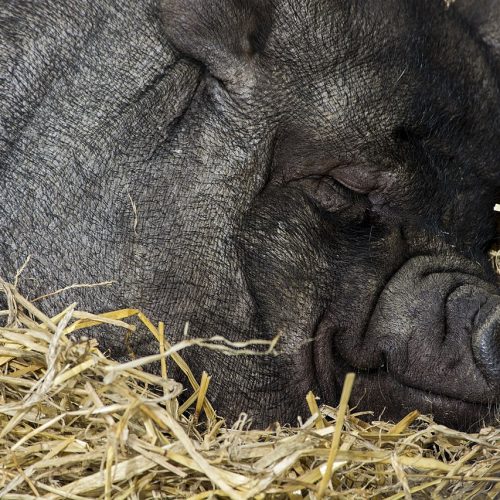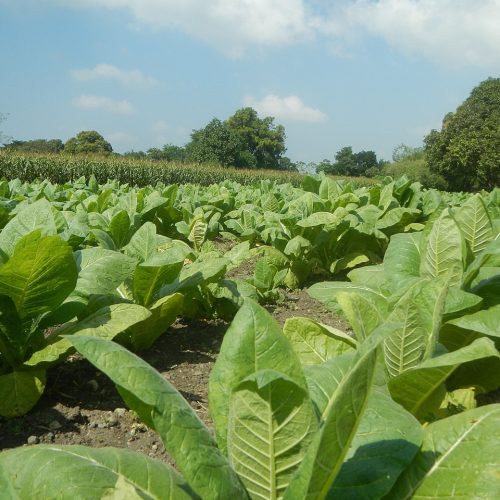Austria has a bit of a problem with genetically modified crops. This is not an altogether surprising statement, as the nation has for two decades been heavily involved in promoting organic farming, in addition to utilizing “holistic” farming processes that include homeopathy as the main treatment for sick animals.[1] The fact that hundreds of scientific studies the world over have shown homeopathy to have no efficacy whatsoever is not apparently something that matters to the Austrian government.
The pushing of non-synthetic fertilizers also raises scientific questions, especially in regards to the claimed environmental benefits from only using manure as fertilizer. The science, once again, does not hold up the justification that manure is better for the environment, more so when speaking of intensive organic farming.[2] This usage and organic farming in general also leads to the spread of dangerous bacteria that have the potential to cause disease outbreaks.[3]
Along with these organic farming regulations, Austria has a number of laws regarding development, importation, and all around usage of genetically modified crops. The Austrian Gene Technology Act, passed in 1995, is the overarching law that governs such usage and it has been amended numerous times throughout the years, becoming more and more extensive and binding.[4] The current state of affairs in the country is in most cases just an outright ban on genetically modified crops as a whole with few exceptions.
That sums up some of Austria’s positions on the topic and it frames their position toward the European Food Safety Authority (EFSA) and their, let’s say, scientific disagreements.
Austria and the EFSA
Since the earliest possible opportunity, Austria has been pestering the EFSA to exclude them from any release of biotech crops into the EU market and to block the sale of said crops anywhere in the EU in general. The process of doing so was purposefully made to be complicated, as restricting the market even for a single crop could negatively impact the economies of all the EU member states. The safeguard clause was added into the approval process as an exclusion method for individual members, but it required presentation of scientific evidence and reasoning for such an exclusion to be allowed.
One of the first attempts to do so by Austria was in July of 2004, where the EFSA released a general statement pointing out that no new scientific evidence was presented to justify any prohibition of biotech crops, as what was given was only published material from years beforehand.[5] Another potential avenue besides providing general scientific information against biotech crops is for a member state to present unique environmental factors for their country that would be damaged by allowing biotech crops to be sold. In that regard, as well, Austria failed to give satisfactory evidence, as their claims about small-scale farming being harmed by such crops did not hold up to any kind of scrutiny.[6]
This has continued with practically every new approved biotech crop, such as with canola breed GT73 in 2012. Another request was made by Austria to not allow any marketing, importation, or even feed animal sale within the country. The EFSA once again convened a scientific committee to go over the presented scientific evidence on why allowing the sale of this crop would be damaging to the member state. No new scientific evidence was presented this time as well, though Austria did bring up the claim that potential spread of canola seeds into the environment could be damaging to the country as a whole. When asked by the committee to present evidence that such a spread was different than the potential spread of any other canola crop that wasn’t genetically modified, no evidence or examples could be given and the committee concluded that the safety measures in place to control environmental spread were already stringent enough.[7]
The safeguard clause was used in this case and in all future cases as an attempt by Austria to circumvent sale of genetically modified crops in the European Union member states. As with this attempt, all future ones would also fail to present meaningful scientific evidence for the claims, often just reusing past debunked and discredited studies. Though this does not mean new strategies would not be invoked at disparate intervals.
On June 20, 2013, a technical meeting was convened between the EFSA scientific board and the Austrian delegation to discuss whether certain aspects of genetically modified crops required an expansion of the regulations. The specific breed under discussion was a variety of Bt corn named MON 863 and the Austrian representatives started by presenting evidence claiming that the usage of one of the most common marker genes, an antibiotic resistance gene called the Neomycin phosphotransferase II gene (nptII), would lead to the formation of mosaic genes.
While defending that their results were only “preliminary”, the Austrian delegation stated that this should be enough for them to ban the marketing of the breed. The EFSA committee was not convinced and pointed out multiple problems with the claim, such as the lack of homology between the marker gene and the genes they tested the mosaic formation on and that there were no known mosaic genes related to the nptII gene in the first place. A number of other issues with the scientific evidence presented were pointed out and the claim was largely dismissed.
Other parts of the meeting went more smoothly, with the committee agreeing that a framework for horizontal gene transfer was needed, but that such a model had no relation with the discussed crop breed, as cultivation hasn’t been approved in the first place anyways.[8] It comes as no surprise, however, that just a few months later Austria tried to make a direct request to have MON 863 banned. Just like every other time, the EFSA committee found no new scientific evidence and rejected the request.[9]
Only a few of the myriad of attempts by Austria to block biotech crops have been noted above and there are tens of other requests both before and since. The most recent was on April 5th of last month, where Austria tried yet again to ban canola breed GT73. This particular bid trying to claim that mere transport of canola through Austria would irrevocably damage the country’s environment. They were shot down for the several dozenth time.[10]
Little to no defensible scientific evidence for harm, either medically or environmentally, has been presented by Austria in all of their requests and there is little doubt that they will continue pushing debunked studies and evidence for long into the future. But the EFSA, as the bastion of scientific fact and general food production logic in the EU, will continue to shoot down any request or demand that comes at them without scientific backing. If only the same could be said for the Austrian government itself.
References
- Tischler K, Rech T. 2009 Jul. Organic Farming in Austria. Federal Ministry of Agriculture, Forestry, Environment and Water Management; [accessed 2016 May 3]. http://www.bhutan-network.com/wp-content/uploads/2015/08/Organic_farming_in_Austria.pdf
- Dahan O, Babad A, Lazarovitch N, Russak EE, Kurtzman D. 2014. Nitrate leaching from intensive organic farms to groundwater.Hydrology and Earth Science Systems [accessed 2016 May 3]; 18:333–341. http://www.hydrol-earth-syst-sci.net/18/333/2014/hess-18-333-2014.pdf
- Mukherjee A, Speh D, Dyck E, Diez-Gonzalez F. 2004. Preharvest evaluation of coliforms, Escherichia coli, Salmonella, and Escherichia coli O157:H7 in organic and conventional produce grown by Minnesota farmers.Journal of Food Protection [accessed 2016 May 3]; 67:894–900. http://www.ncbi.nlm.nih.gov/pubmed/15151224
- Federal Ministry of Health. 2012 Dec 31. Description of Austrian Regulations on Genetic Engineering. Bundesministerium für Gesundheit; [accessed 2016 May 3]. http://bmg.gv.at/home/Schwerpunkte/Gentechnik/Fachinformation_Allgemeines/Description_of_Austrian_Regulations_on_Genetic_Engineering
- Weirich P. 2007. European Legislation for Traceability and Labeling of GMOs. In: Labeling Genetically Modified Food: The Philosophical and Legal Debate. Oxford University Press. [accessed May 3, 2016]. https://books.google.com/books?id=rWUuIcRNCkAC&pg=PA40
- Lee M. 2014. GMOs and National Autonomy. In: EU Environmental Law, Governance and Decision-Making. Bloomsbury Publishing. [accessed May 3, 2016]. https://books.google.com/books?id=CYESBwAAQBAJ&pg=PA228
- EFSA Panel on Genetically Modified Organisms. 2012. Scientific Opinion on a request from the European Commission related to the prolongation of prohibition of the placing on the market of genetically modified oilseed rape event GT73 for import.EFSA Journal [accessed 2016 May 3]; 10:1–33. http://www.efsa.europa.eu/sites/default/files/scientific_output/files/main_documents/2876.pdf
- European Food Safety Authority. 2013. Bilateral technical meeting between members of the EFSA Panel on Genetically Modified Organisms and the Austrian delegation on the national safeguard clause on GM maize MON 863.EFSA supporting publication [accessed 2016 May 3]; :1–9. http://www.efsa.europa.eu/sites/default/files/corporate_publications/files/528e.pdf
- European Food Safety Authority. 2013. Scientific Opinion on a request from the European Commission for the assessment of the new scientific elements supporting the prolongation of prohibition of the placing on the market of maize MON 863 for food and feed purposes in Austria.EFSA Journal [accessed 2016 May 3]; 11:3454. http://www.efsa.europa.eu/en/efsajournal/pub/3454
- European Food Safety Authority. 2016. Assessment of new scientific elements supporting the prolongation of prohibition of the placing on the market of genetically modified oilseed rape GT73 for food and feed purposes in Austria.EFSA supporting publication [accessed 2016 May 3]; :1–12. http://www.efsa.europa.eu/sites/default/files/scientific_output/files/main_documents/1022e.pdf
Written by: Sterling Ericsson
Word Count: 1,133
Type: News Bite





